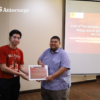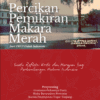A Singapore-flagged Neopanamax container ship, MV Dali, was set to depart Port of Baltimore on March 26, 2024, with 23 crew members on board bound for Colombo, Sri Lanka. Unfortunately, when she entered the Fort McHenry channel and began to head down the Patapsco River, MV Dali collided with Francis Scott Key Bridge. According to various information, the vessel experienced a “momentary loss of propulsion” that made her drifted to the right in the direction of one of the bridge’s main center columns then crashed them. The crew on board reported a “power issue”, and multiple alarms rang out alerting the problem.
The incident has caused disruption to the supply chain as other merchant ships are forced to anchor outside the port. The loss incurred from the collision is estimated in the sum of US$15 million per day.
The Legal Implications
Following the incident, the owners and operator of MV Dali filed a petition to the local court seeking limitation of liability.
In such petition, the owners and operator seek to limit their liability to the value of the ship (MV Dali), which was estimated at US$43.6 million. Pre-collision assessments place the vessel’s value as high as US$90 million but cleanup from the incident eats into the ship’s overall value. The estimate deducts several significant costs, such as the bridge repair costs, which were estimated to have cost at least US$28 million, the salvage charges, which were estimated to have cost US$19.5 million and involved recovering the wreckage as well as its removal from the site, and damage to freight is about US$1.1 million.
The Federal Court in Maryland is currently reviewing the joint petition and will decide where the responsibility lies and how much is owed in damages.
Lesson for Indonesia
The purpose of limitation of liability is to protect ship owners from measureless exposure of risk that may be overwhelmingly beyond the value of the implicated ship in the event of an incident. Hence, if the incident occurred in Indonesia, the question is whether shipowners may legally avail themselves to such protection.
In Indonesia, the apportion of liability in ship collision is regulated under Wetboek van Koophandel or the Commercial Code, which was inherited from the Dutch colonial era. The apportion of liability in ship collision cases, including those involving immovable objects, shall be determined by judges in the court of law.
In the case of a collision between ships where each party shares fault, the judges shall establish the proportion of liability according to the degree of the involving parties respective fault. The same approach is also applicable in the event of a collision between ships with immovable or fixed objects unless it is evidenced that the collision solely happened due to the fault of the ship in motion.
Back to the issue of limitation of liability, under the Commercial Code, shipowners may seek limitation of liability to the amount of IDR50.00 for each cubic meter of net volume of the ship, plus, insofar as the ship is propelled by mechanical power, the extent of the space occupied by her engine in determining her gross volume. However, such amount which converted from Dutch guilders at the time the code was promulgated, is considered insignificant and outdated. Therefore, in practice, Indonesian judges reluctantly apply such limitation as the amount is no longer relevant to the current economic situation. On the top of that, it is also essential to be noted that Indonesia is currently not a party to the Convention on Limitation of Liability for Maritime Claims of 1976 (LLMC).
The Needs to Update the Law on Limitation of Liability
Learning from the MV Dali case, Indonesia needs to update its law on maritime limitation of liability. Such law is crucial not merely to provide protection for shipowners in the event of incidents but also to encourage the growth of shipping industry in the country.





